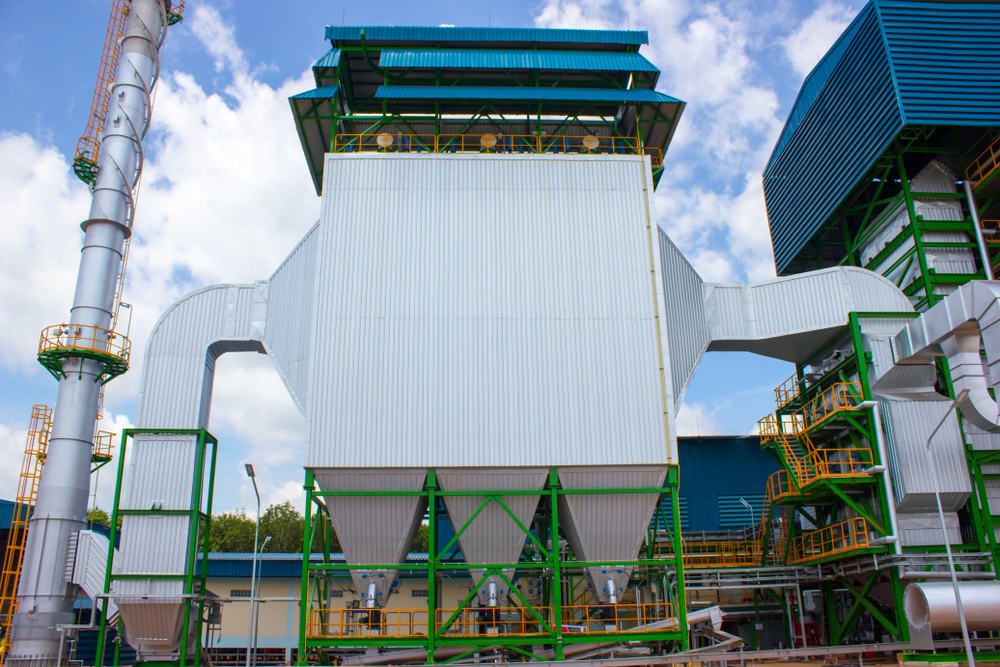Industrial dust collector play a vital role in ensuring air quality and workplace safety. They help to maintain clean and healthy working environments by removing harmful airborne particles from the air. But with so many different types of dust collectors available, how do you know which one is best for your facility? In this comprehensive guide, we will explore the various types of industrial dust collectors, their applications, and the benefits they provide. By understanding the different options available, you can make an informed decision on the best dust collection system for your needs.

Types of Industrial Dust Collector
Cartridge Dust Collectors: Cartridge dust collectors are popular for their compact design and high filtration efficiency. They use filter cartridges to capture dust particles from the air, which are then easily removed for cleaning or replacement. These collectors are ideal for handling fine, dry dusts and are commonly used in metalworking, woodworking, and powder processing industries.
Baghouse Dust Collectors: Baghouse dust collectors, also known as fabric filter collectors, use filter bags to capture dust particles from the air. The collected dust accumulates on the outside of the bags, which can be periodically cleaned or replaced. Baghouse collectors are suitable for handling larger dust particles and higher dust loads, making them a popular choice in industries such as cement production, mining, and chemical processing.
Cyclone Dust Collectors: Cyclone dust collectors use centrifugal force to separate dust particles from the air. As the air enters the collector, it is forced into a spiral pattern, causing the heavier dust particles to be thrown against the walls of the collector and fall into a collection bin. Cyclones are effective for handling coarse dust particles and are commonly used in woodworking and metalworking industries.
Wet Scrubbers: Wet scrubbers are a type of dust collector that uses water or other liquids to capture and neutralize dust particles. The air is passed through a scrubbing chamber, where the dust particles are trapped by the liquid droplets. Wet scrubbers are highly effective at removing hazardous dust, such as heavy metals, chemicals, and combustible dust, making them a popular choice in industries with strict air quality regulations.
Applications of Dust Collector in Various Industries
Woodworking: Woodworking operations, such as sawing, sanding, and planing, generate large amounts of wood dust that can be harmful to workers and equipment. Dust collectors help to maintain a clean and safe working environment by capturing and removing the dust from the air.
Metalworking: Metalworking processes, such as grinding, cutting, and welding, produce fine metal dust particles that can pose health risks and damage equipment. Industrial dust collectors help to prevent these issues by filtering the air and keeping the workplace clean.
Food Processing: Food processing operations, such as milling, blending, and packaging, can generate large amounts of dust from ingredients like flour, sugar, and spices. Dust collectors are essential in maintaining a clean and sanitary environment, as well as preventing cross-contamination between products.
Pharmaceuticals: Pharmaceutical manufacturing often involves the handling of powders and chemicals, which can create hazardous dust. Dust collection systems are crucial for maintaining a clean and safe environment, ensuring product quality, and complying with regulatory standards.
Mining: Mining operations generate large quantities of dust from drilling, blasting, and crushing. Dust collectors help to prevent health and safety hazards, as well as protect equipment and the environment from the harmful effects of dust.

Benefits of Using Industrial Dust Collectors
- Improved Air Quality: Dust collectors remove harmful airborne particles, resulting in cleaner air and a healthier work environment. This can lead to increased employee productivity, reduced absenteeism, and lower healthcare costs.
- Workplace Safety: By removing dust from the air, dust collectors help to prevent workplace accidents and injuries caused by poor visibility, respiratory issues, and combustible dust hazards.
- Equipment Protection: Dust can cause damage to equipment and machinery, leading to costly repairs and downtime. Dust collectors help to protect your investment and keep your facility running smoothly.
- Regulatory Compliance: Many industries are subject to strict air quality regulations. Industrial dust collectors can help your facility meet these requirements and avoid fines and penalties.
Maintaining Your Dust Collection System
To ensure the efficiency and longevity of your dust collection system, regular maintenance is essential. This includes inspecting and cleaning filters, checking for leaks and damage, and monitoring the system’s performance. Proper maintenance will help to prevent costly repairs and extend the life of your dust collector.
Conclusion: Selecting the Right Dust Collector for Your Facility
Choosing the right dust collector for your facility is crucial in maintaining a clean and safe work environment. Consider factors such as the type and size of dust particles, the volume of dust generated, and the specific requirements of your industry. By selecting the appropriate dust collector and maintaining it properly, you can protect your employees, equipment, and business from the harmful effects of dust.











Find Us on Socials